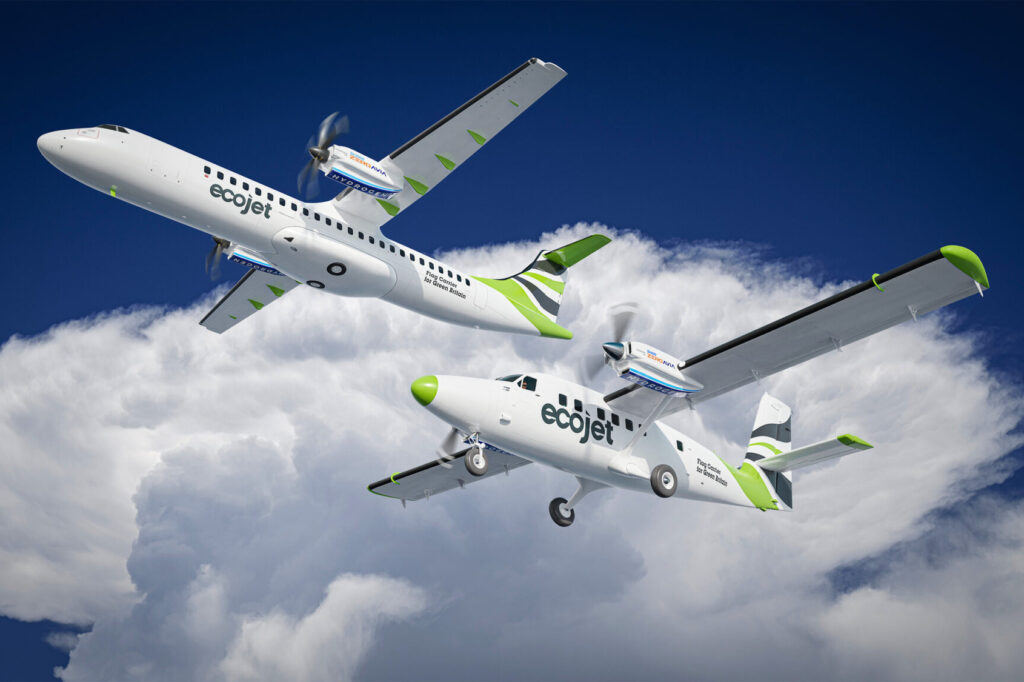Edinburgh-based airline Ecojet has announced plans to purchase 22 ZA2000 hydrogen electric engines from ZeroAvia, thereby moving one step closer to achieving zero-emission flights.
The sale was announced during the Farnborough International Airshow 2024.
“Ecojet is on a mission to make net-zero, emission-free air travel possible for the first time,” Dale Vince, Founder of EcoJet, said in a press release. “This is nothing short of a revolution in aviation, the world has just moved a step closer towards a solution to sustainable air travel.”
The ZA2000 engines are designed to be installed into regional turboprops with 40-80 seats to help transition towards carbon-free operations. ZeroAvia’s electric engines produce electricity from hydrogen, which powers the aircraft’s propellers. ZA2000 will be compatible with regional turboprop aircraft such as the ATR-72 or the Dash series aircraft.
At first, Ecojet plans to use ZeroAvia’s ZA600 engines to power emission-free aircraft with a capacity of up to 20 seats, after committing to order up to 70 hydrogen-electric, zero-emission engines in November 2023. Eventually, though, the carrier intends to expand its fleet with bigger regional aircraft for domestic and short international flights.
Ecojet plans to begin offering services at the end of 2024, initially using traditionally fueled aircraft and outfitting them with the new technology after receiving certification.
“Dale speaks powerfully on the future ubiquity of renewable power and is already helping to make that a reality in the UK,” Val Miftakhov, Founder and CEO of ZeroAvia added. “Hydrogen-electric aviation can be a big part of that journey, opening up low-cost, efficient and safe true zero-emission transport between UK destinations like never before.”
ZeroAvia has already tested its first ZA600-engine prototype on a Dornier 228 aircraft at its UK facility. The company conducted tests for the ZA2000 system in the US and UK, which involved cryogenic tanks for LH2, PEM fuel cell and electric propulsion systems.

